THE TV presenter and journalist, Geeta Pendse, chaired the opening sessions of the London Book Fair (LBF) which analysed the issue of diversity in the publishing world.
The LBF – held over three days last week at Kensington Olympia – also looked at what might constitute enjoyable literature for ethnic minority children to give them the reading habit from the earliest age. One suggestion for British Indian parents was that they could import comic books from India telling the stories of the Mahabharata and the Ramayana – as Pendse’s mother had done.
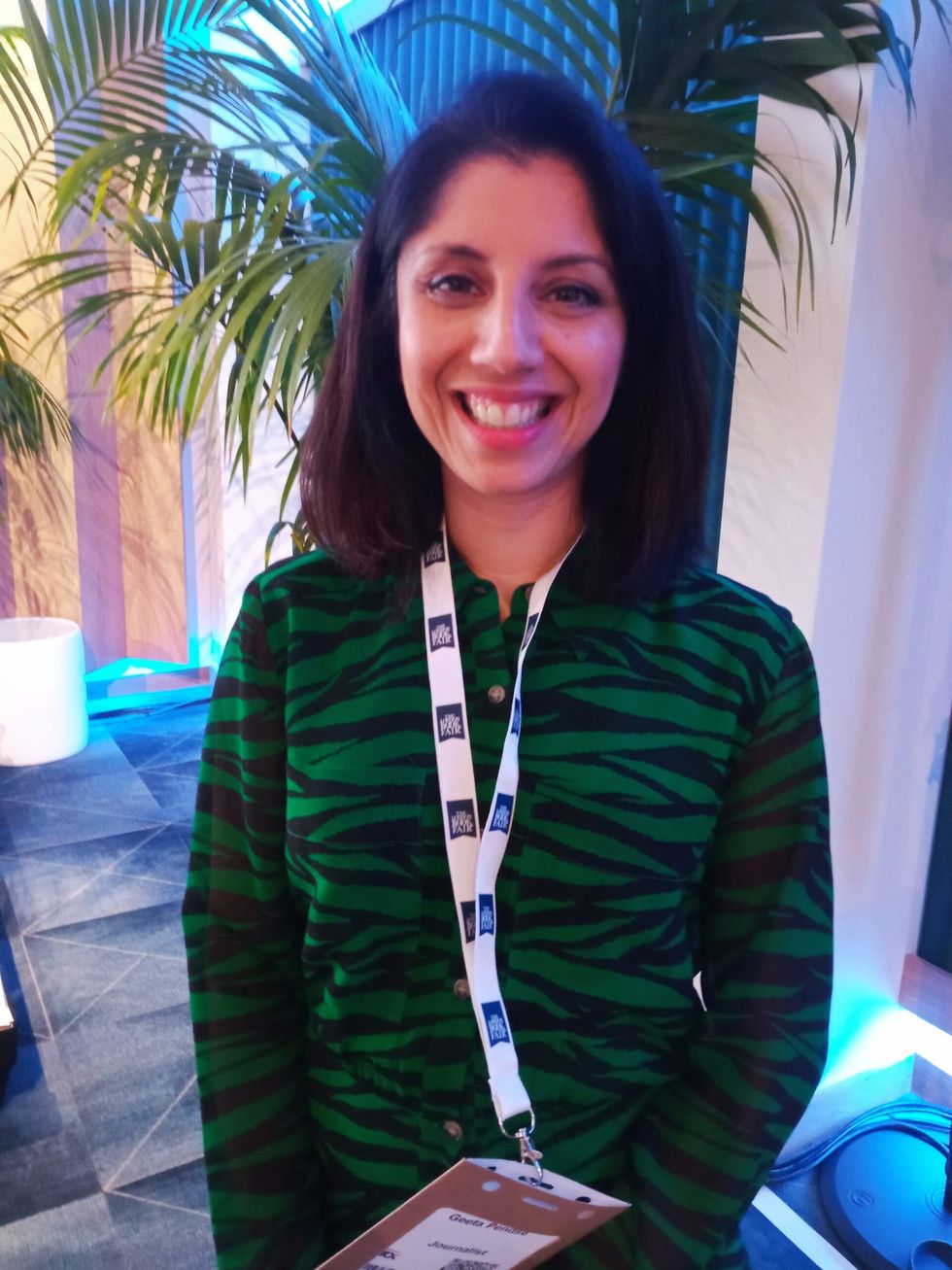
Speaking on the “Main Stage” at the inauguration of the LBF, Pendse told her audience: “I am thrilled to be here. It’s my very first London Book Fair. I don’t know if any of you here are newbies, but it’s taking my breath away as someone who loves books.
“I’m a journalist, and like many here, I do understand the power of words and storytelling to evoke empathy, and prompt new ways of thinking.”
She added: “While I’m not within the world of publishing directly, the world of books and reading has had a transformational impact on my life as a young girl growing up in Croydon and then in Nottingham in the Midlands. It was the trip to the local library with my mum that was the highlight of my week, and I devoured books like some of my friends devoured Jammie Dodgers.”
As a child of the 1980s and a teenager in the 1990s, “I devoured just as many books. Whether it was To Kill a Mockingbird or Sweet Valley High or books about Indian gods and goddesses, I just soaked up whatever I could get my hands on.
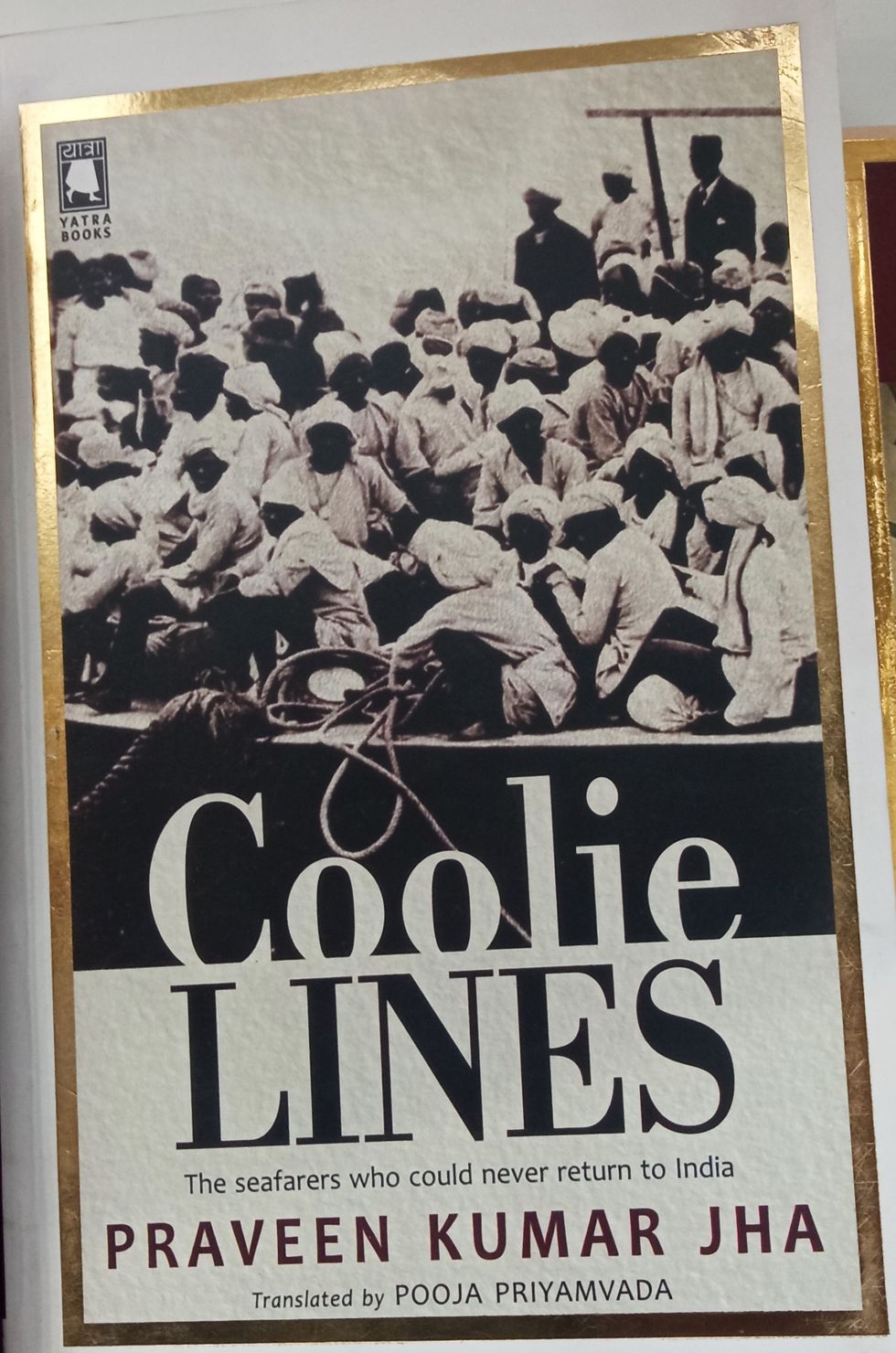
“And as I’m sure is the case for many of you here, reading those books is about being transported into a different world, worlds that you didn’t even know existed and into the minds of people that are so far away from your own experience.
“But, certainly for me, the deepest connections came when I connected with a character who either through their emotional inner workings, their cultural setting or the storyline itself, really connected with me on a deep level.”
Pendse’s CV explained why she was given a starring role at the LBF. It said she is “a freelance journalist and presenter with 15 years’ experience delivering content for broadcasters. She has worked for BBC Sunday Morning Live, BBC Radio 4, BBC Breakfast, BBC Politics, East Midlands Today, BBC Three and Sky Arts as a reporter and presenter.
“She presents the weekly politics show on BBC One in the East Midlands and anchored the BBC’s general election debate for the region, skilfully enabling a public audience to put their questions to a range of politicians. Geeta has developed a specialism as an arts reporter.”
Pendse recalled that when she was growing up, “the books that really reflected my lived experience and those of my family and the communities around me were few and far between. Thankfully, the publishing industry has evolved and changed and continues to change so much.
“I just wanted to share very briefly some of the people that are really exciting me and I’m sure every single person in this room has their own, from works of fiction from writers such as Jyoti Patel, exploring the heritage and modern experience of the Gujarati, to a non-fiction work by Dr Corinne Fowler, Our Island Stories, all about the impact of colonialism in rural landscapes across the United Kingdom.”
Pendse also mentioned Kat Brown, “whose brilliantly edited book, No One Talks About This Stuff: Twenty-Two Stories of Almost Parenthood, is crowd funded non-fiction. The reason I mentioned these books and I know that these are just a drop in the ocean, is they excite me because they produce a spotlight on people and communities, on places that are sometimes hidden or undervalued in a way that only books can do.”
Pendse talked about the LBF: “Now this year, we expect around 30,000 publishing professionals to walk in the doors across three days, along with am-ple opportunities to network and to do business.”
In an interview with Eastern Eye, Pendse said: “I am actually Marathi [Maharashtrian]; I still haven’t read a book yet with a Marathi British Asian author, so I’m waiting on that one.”
She recalled: “I grew up in Thornton Heath in London and we had a lovely little library in Croydon. I read Sweet Valley High about twins living in Califor-nia. And then my mum would import comics from India, which would be around stories of the Rama-yana and Mahabharata. They were just so beauti-fully illustrated and told these dynamic stories.
“For a lot of south Asian people, I feel that story - telling is in our blood. Those comic books and those books around Indian mythology have stayed with me all my life. They’ve given me that opportunity to become a journalist because I think I understood the idea of a great story – though nothing can compare to the Mahabharata. I certainly feel that was very im-pactful as a young child growing up in the UK as well around my own identity and my heritage.”
The books she would take to a desert island would include the Bhagvad Gita and Vikram Seth’s A Suitable Boy, Pense added.
The opening session of the LBF that she moder-ated was a conversation between two Americans – Jonathan Karp, president and CEO of Simon & Schuster, and Porter Anderson, editor-in-chief of Publishing Perspective.
Karp said: “We’re committed to growth in Canada, Australia, India, all our English language territories; and also, to having more of an international perspec-tive in terms of the works we acquire and publish.”
Asked about the impact of AI on publishing, he res - ponded: “Like a lot of companies, we are proceeding with great caution. It’s a tool and a powerful one.
“The one area where we’re looking at it – but do-ing a very cautiously – is in the audio arena where we are going to experiment in languages where authors of old books might not otherwise ever be published.”
He revealed Simon & Schuster would mark its 100th anniversary next month by gathering 30 of its authors in New York and livestreaming an event where they would read from their works.
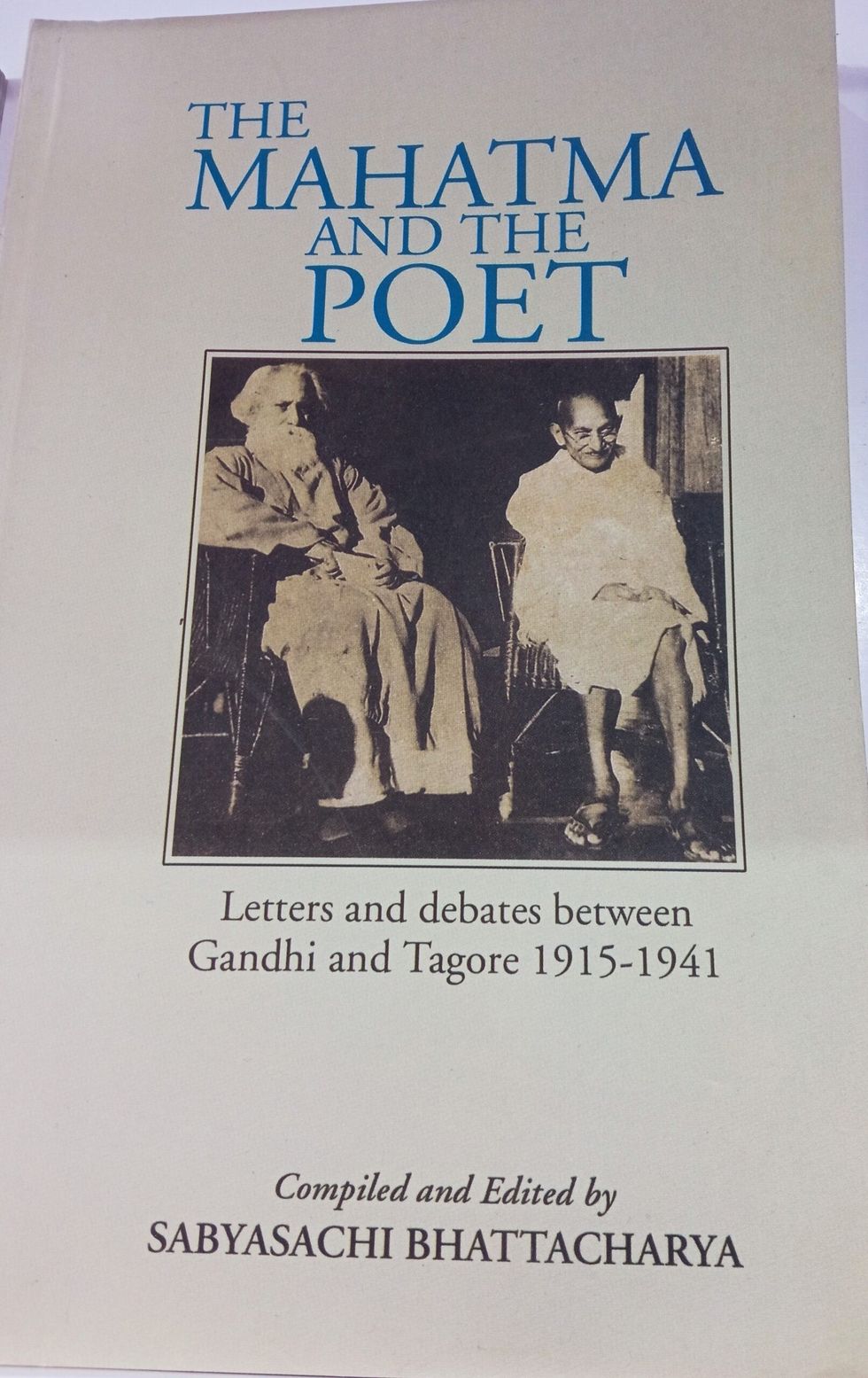
On the third day of the LBF, the question of diver-sity in children’s literature was also raised by Nigeri - an origin author Kelechi Okafor.
Moderating a session, “Creating a culture of read-ing for pleasure”, Okafor said: “I feel like the elephant in the room. I’m the black woman who’s here moder-ating this conversation. In the industry, sometimes it feels like black voices aren’t often heard. And yet we get surges of initiatives here and there.
“But if we are talking about this culture, regar - ding pleasure from rea - ding, if children aren’t seeing themselves, how does that happen?
“And we talked about my experience, where I’ve got two books out now, a picture book, as well as a collection of short stories.
“I remember coming here from Nigeria when I was five years old, and I only spoke one of the languages in Nigeria. My stepdad said to me, ‘You’re in England, now you have to speak (only) English’,” Okafor said.
She posed a rhetorical question to her fellow (white) panellists: “How important do you feel it is that young people – regardless of cultural background, ethnicity, race – have that initial affinity with reading?”.


















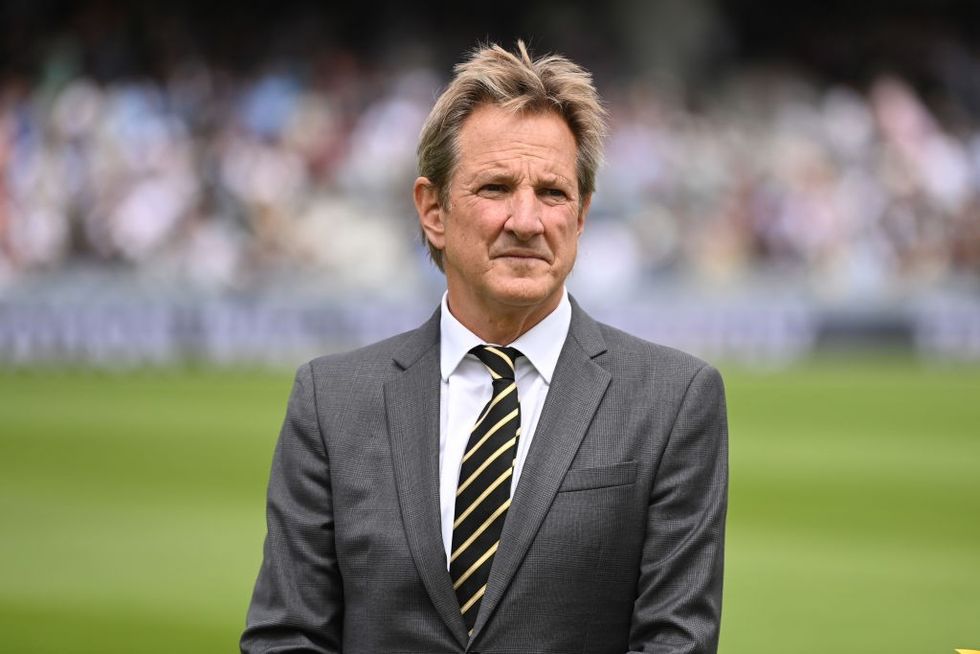 MCC president Mark Nicholas. (Photo by Gareth Copley/Getty Images)
MCC president Mark Nicholas. (Photo by Gareth Copley/Getty Images)
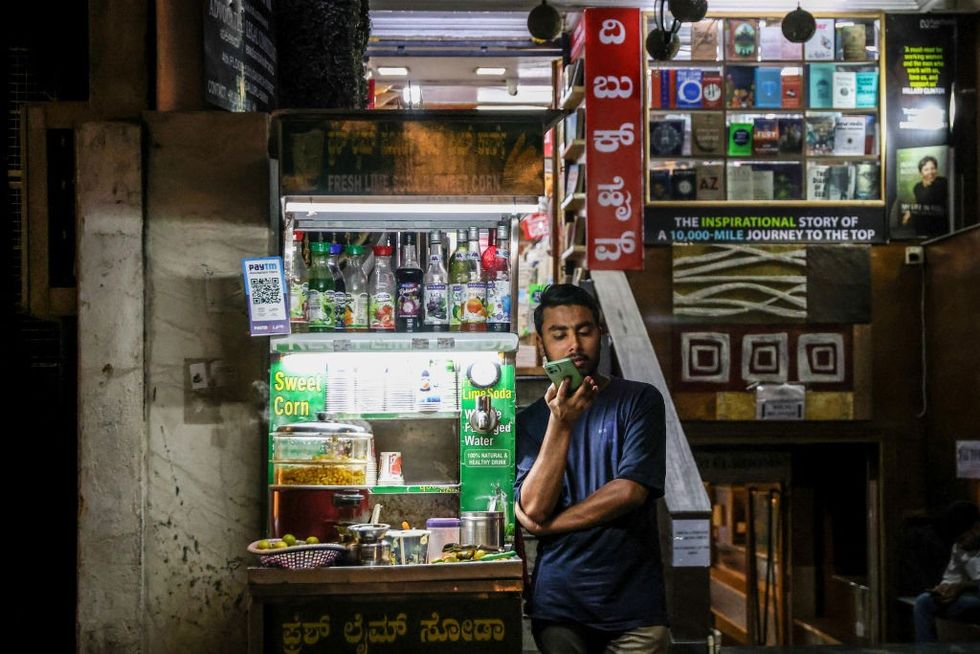 A street vendor looks at his smartphone on April 27, 2024 in Bengaluru, India. (Photo by Valeria Mongelli/Getty Images)
A street vendor looks at his smartphone on April 27, 2024 in Bengaluru, India. (Photo by Valeria Mongelli/Getty Images)
 Nair with Tom Brittney and Robson Green in a poster for the show
Nair with Tom Brittney and Robson Green in a poster for the show
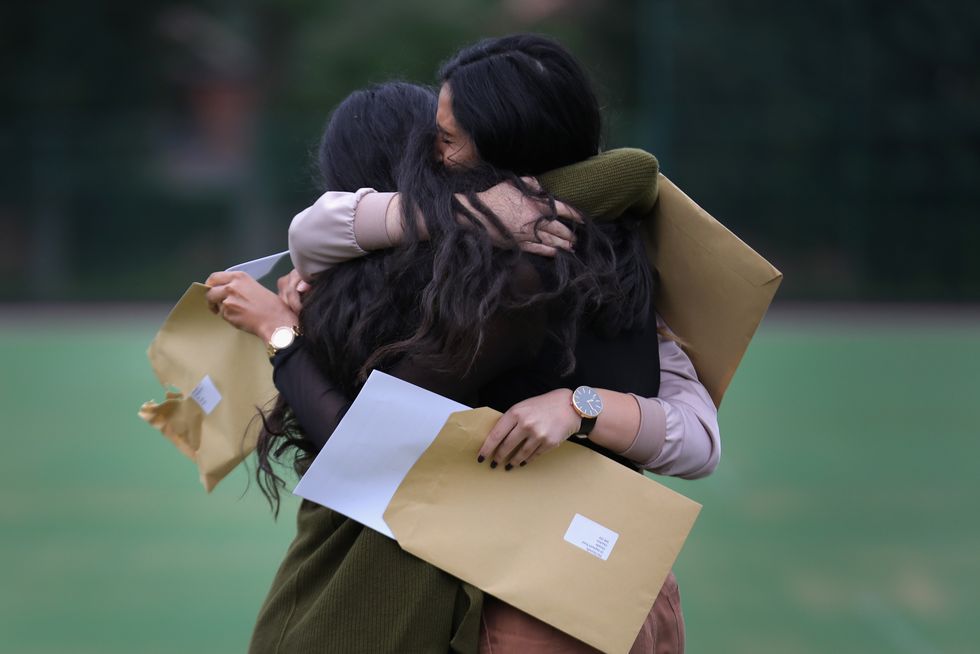 Private schools have been impacted by the 20 per cent VAT imposed on them
Private schools have been impacted by the 20 per cent VAT imposed on them